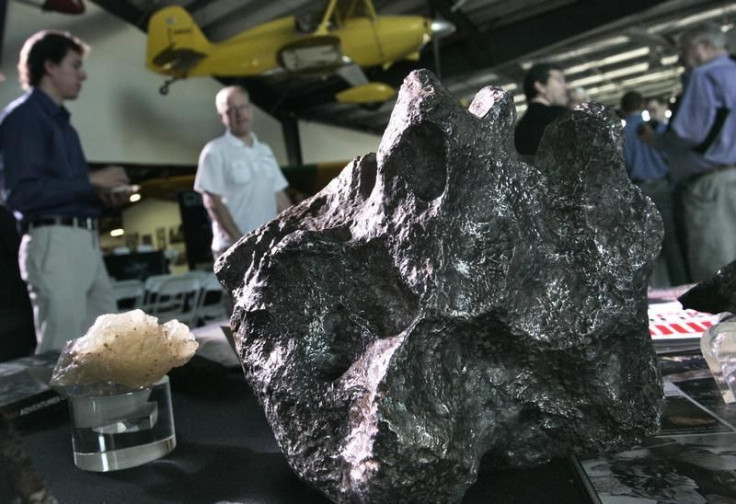Asteroid 2012 Da14 Flyby Video: DSI To Launch Asteroid Mining Probe [VIDEO]

Hollywood tends to depict asteroids as Earth-shattering nemeses, but, in the real world, some see asteroids as proverbial (and perhaps even real) gold mines and even hope to find ways to bring them closer to Earth's orbit.
According to Washington, D.C.-based aerospace company Deep Space Industries Inc., or DSI, the 50-meter-diameter, 190,000 metric-ton Asteriod 2012 DA14 that will make a close inter-orbital pass at Earth on Friday could have as much as $195 billion in mineral resources. These include iron, nickel and other building materials, as well as water (which could be used to make hydrogen fuel). DSI is quick to point out that this estimate is broad, and DA14’s trajectory isn’t cost-effective for exploration.
Still, asteroid mining could be more cost-effective to harvest way up there than way down here.
“It costs $5,000 a pound (2.2 kgs) to get anything up to the orbit of a geosynchronous satellite,” said David Gump, CEO at DSI, which says it plans to launch three exploratory probes, called Fireflies, at the nearest asteroid as soon as early 2015.
Much of that cost involves pushing materials up through the stratosphere and into near-Earth orbit. The more materials that can be acquired from space itself, the lower a mining company's costs.
The idea of a space mining operation sounds out of this world, but Gump insists there’s a real possibility for this kind of thing -- and not in some distant future in a galaxy far, far way, but as early as 2020, which is DSI’s target date to begin actively harvesting materials.
“There’s the prospecting phase and the harvesting phase,” Gump said. “In the prospecting phase, we would send these small probes to go take small samples from an asteroid and bring them back to Earth. In the harvesting phase, we would go and actually capture an asteroid four to seven yards in diameter and bring it back to a parking orbit closer to earth.”
In the initial phase, three 57-pound Firefly probes would hitch a ride on any of the dozens of satellite launches that occur every year worldwide as secondary payloads at a price tag of about $1 million per shot. They would then use extra fuel to reach out past satellite orbit to a nearby rock, attach themselves to the asteroid, grab some samples and send them back home.
Deep Space Industries isn’t the only company setting its sights super high on interstellar resource discovery and utilization. Planetary Resources is also betting on the future of space harvesting and mining. The Bellevue, Wash.-based company has financial backing from Google Inc. (NASDAQ:GOOG) founders Larry Page and Sergey Brin.
Gump says his company will help offset costs by seeking $20 million, split between corporate sponsorship and aerospace agencies that might want access to the exploratory findings.
© Copyright IBTimes 2024. All rights reserved.




















